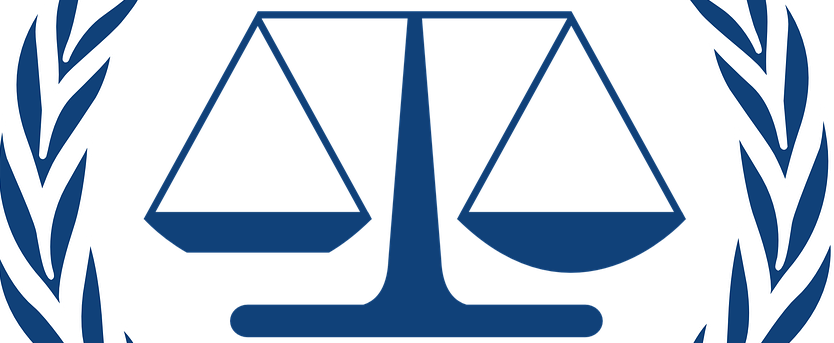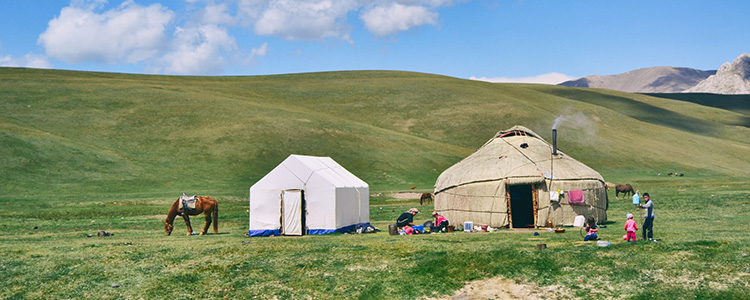Switzerland Country Bundle: suggestions, stories and tips
Content about Switzerland on WorldSupporter
 How does healthcare work in Switzerland, and what travel insurance, health insurance or expat insurance do you need?
How does healthcare work in Switzerland, and what travel insurance, health insurance or expat insurance do you need?
- How does the healthcare system work in Switzerland?
- What is the quality of healthcare in Switzerland?
- How does the public healthcare system work in Switzerland?
- How does the private healthcare system work in Switzerland?
- How is the general practitioner arranged in Switzerland?
- How is the dentist arranged in Switzerland?
- How is pregnancy care arranged in Switzerland?
- How safe or unsafe is a trip or stay in Switzerland?
- What work and travel insurance policies are suitable for short and long stays in Switzerland?
- What emigration and expat insurance can you take out for Switzerland if you are going to live there for a while?
How does the healthcare system work in Switzerland?
What is the quality of healthcare in Switzerland?
- Switzerland's health care system is of very high quality and has ranked high on the Euro Health Consumer Index for years compared to 35 European countries.
- At the same time, it is also one of the most expensive health care systems in the world.
- Low-income people, children and young adults (provided education is received) often receive premium subsidies. Eligibility for subsidies is determined by the cantons.
- Switzerland operates a system in which the premium is increasingly reduced for each year in which no claims for health care costs are submitted.
- The country also has one of the highest densities of nurses, with about 17 nurses per 1,000 residents.
- Swiss healthcare is accessible. There is a very low infant mortality rate and high cancer survival rates.
You gain access to health care in Switzerland by signing up for health insurance.
- If you are an EU citizen: please keep in mind that Switzerland is not part of the EU.
- Everyone living in Switzerland, foreigners included, is required by law to have basic insurance (Grundversicherung/Assurance de base) within three months of arrival. This also applies:
- if you are a foreigner working in Switzerland for less than 3 months, unless you have taken out appropriate international health insurance yourself
- if you have come to Switzerland with the intention of living there permanently.
- Haven't arranged health insurance yet? And EU citizen? With a European Health Insurance Card (EHIC), you can access medical care in Switzerland in emergencies -specific rules apply.
There are several rules around obtaining health insurance:
- You must first register with the local Swiss canton.
- After registration, you have a limited number of weeks to sign up for health insurance.
- Registration requires several documents, such as your Swiss residence permit, proof of address, recent utility bill or rental agreement.
- Finally, you will be given a health insurance card to show at all medical appointments. This is proof to your health care provider that you are entitled to Swiss health care.
- Make sure you register within three months, otherwise you may be fined, expenses already incurred will not be reimbursed and insurance will automatically be chosen for you.
How does the public healthcare system work in Switzerland?
- Switzerland does not have public health care like some other European countries. It is a universal system, but there is no (free) public care.
- Healthcare is mainly financed through private insurance companies.
How does the private healthcare system work in Switzerland?
- Switzerland has one of the largest private health markets in the world, with plenty of choice and competition.
- Private health insurance is mandatory in Switzerland. Private care is called Soziale Krankenversicherung (German), Assurance Maladie (French), Assicurazione-Mallatie (Italian).
- You can choose your own insurer. Note that not every insurer offers insurance to foreigners; check this carefully. The basic package is the minimum offer; costs vary by canton.
- Everyone living in Switzerland has access to health care as long as they have health insurance. Healthcare is good but also very expensive for both Swiss residents and foreigners, due in part to the high deductible and surcharges.
- Residents and non-residents need at least basic health insurance, which covers 80-90% of their health care costs.
- Many short- and long-term visitors to Switzerland opt for international insurance packages.
- As an insured person, you choose your own deductible and also bear 10% of the cost of most medical appointments, up to a maximum of about 700 Francs per year.
- If you need a medical examination or treatment, you can choose any authorized health care provider suitable for the treatment of your condition. Unless you have chosen a type of insurance with a limited choice of health care providers.
- Additional insurance is available for such things as alternative therapies, private rooms and comprehensive dental care.
How is the general practitioner arranged in Switzerland?
- The healthcare system is GP-oriented. You usually see a general practitioner before seeing a specialist. But there are exceptions, including:
- Sick children often do not go to the family doctor first, but directly to the pediatrician, who, together with the school doctor, also provides consultation office care.
- Women from age 16 go directly to the gynecologist, including for smears, contraception and menstrual problems.
- In general, you can choose your own family doctor, depending on your policy. The doctor may refer you to a specialist.
- Depending on your insurance policy, sometimes you can see a specialist without a referral from your doctor. This is then covered by the insurance.
- Certain diagnostics (e.g., by X-ray) and treatments are performed by general practitioners in Switzerland. Often there is an advanced laboratory in the general practice.
- It is important if you have an appointment with a general practitioner to confirm the appointment with the doctor, otherwise you will be charged a cancellation fee.
- Many Swiss doctors speak English, especially in urban areas.
How is the dentist arranged in Switzerland?
- Swiss dentists offer services in a private practice or a public dental clinic.
- Dental care is generally not covered by basic insurance. This applies to both preventive treatments (such as teeth cleaning) and more intensive dental care.
- Dental visits in Switzerland are expensive. Many people choose to take out additional insurance or arrange their dental visits abroad (for example in neighbouring countries such as Germany or France).
How is pregnancy care arranged in Switzerland?
- There are many types of health care providers to choose from during pregnancy. You usually choose a gynecologist or obstetrician to guide you during pregnancy.
- Register early with an obstetrician or gynecologist because popular practices can fill up quickly.
- Births take place in the hospital, at home or in a birthing center.
- Since they often don't have a maternity nurse in Switzerland, it is common to stay in the hospital for about 3 to 4 days after giving birth.
- In Switzerland there are special “wochenbett” wards, where you as “new parents” can sleep and start caring for the baby together with the nurses and midwives.
- Depending on your insurance, you are entitled to a room to share with other maternity women, a family room or a room for yourself.
- Where available, a maternity nurse (hebamme) can help you with breastfeeding and recovery through home visits.
- If you are not insured, a birth can cost upwards of 10,000 euros. So make sure you are insured quickly if you enter Switzerland pregnant.
How safe or unsafe is a trip or stay in Switzerland?
What should you pay attention to in terms of safety in Switzerland?
- Switzerland has one of the lowest crime rates in the world. You can feel safe in cities, towns and the countryside, both day and night.
- Switzerland is a paradise for outdoor enthusiasts, but activities such as skiing, hiking and climbing come with risks. Avalanches, rockfalls and bad weather conditions can be dangerous.
- In summer, heavy rainfall can cause rivers to flood, especially in mountainous areas.
What should you look out for in terms of diseases in Switzerland?
- Switzerland has an excellent healthcare system and high hygiene standards. There are relatively few health risks.
- Tap water is safe to drink, and food safety is strictly regulated.
- In forested areas and grasslands, you may encounter ticks that can transmit TBE (tick-borne encephalitis) or Lyme disease.
What should you pay attention to when it comes to traffic in Switzerland?
- Switzerland has an excellent road network that is well maintained, even in mountainous regions.
- Toll roads are rare, but an autobahn vignette (motorway sticker) is required for use on motorways. These can be purchased at petrol stations and border crossings.
- Mountain passes and roads can be narrow and winding and in the winter you don't want to find yourself forgetting your winter tyres and snow chains.
- Speed limits are strict and fines can be high if you're are exceding the speed limit: 50 km/h in urban areas, 80 km/h on provincial roads and 120 km/h on motorways.
- Driving with dipped headlights is mandatory, even during the day.
- Switzerland has an amazing and punctual public transport system with trains and buses.
- A Swiss Travel Pass can be beneficial for frequent use of trains and other transport.
- Switzerland has an extensive network of cycle paths. Be aware of mountain roads that can be challenging for less experienced cyclists.
What work and travel insurance policies are suitable for short and long stays in Switzerland?
Is the trip to and your return sufficiently covered? Are you sufficiently covered before, during and after your activities? Which insurance best suits your trip and your activity? Read more about insurances for abroad on JoHoinsurances.org.
What emigration and expat insurance can you take out for Switzerland if you are going to live there for a while?
- It is mandatory to take out health insurance if you are staying in Switzerland for three months or longer. There are more than 60 government-approved providers. In addition, it may be wise to take out international health insurance for at least the first period, but sometimes also for the rest of your time in Switzerland, to close the gaps in your coverage and also to be insured for medical repatriation.
- Read more about insurances for abroad on Expatinsurances.org.
 Switzerland: Updates & Travel
Switzerland: Updates & Travel
Travel in Switzerland?
- Switzerland is not only the country of fresh alpine meadows, winter sports, meadows and forests, healthy mountain air and hiking without running into anyone, but also the country that has raised neutrality to an art. The headquarters of the Red Cross and the United Nations locate in Geneva and the country has cultural and beautiful sites such as Bern and Zurich. It is a wonderful vacation country, yet a shame it is pricey.
Updates Switzerland
- More about Switzerland updates and contributions, see the link below.
 Switzerland: selection of contributions by WorldSupporters - Bundle
Switzerland: selection of contributions by WorldSupporters - Bundle
Content about Switzerland shared by WorldSupporters
- 973 reads































































